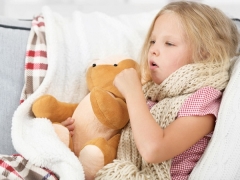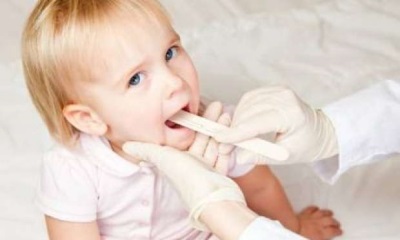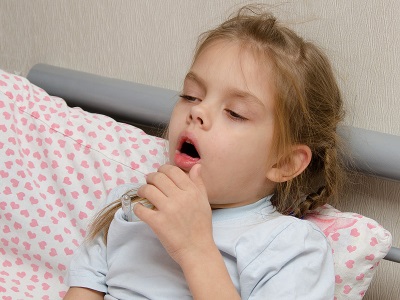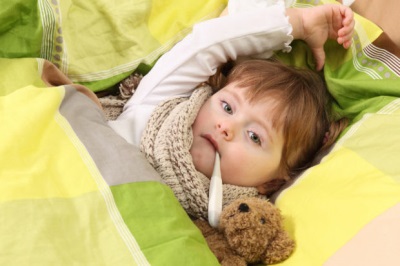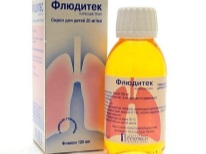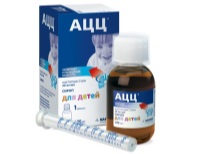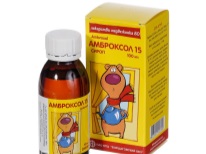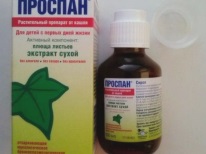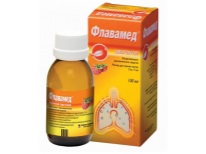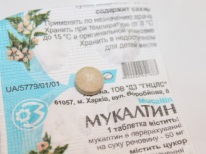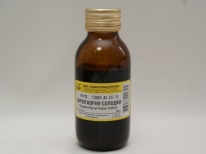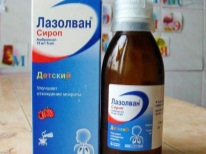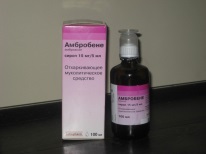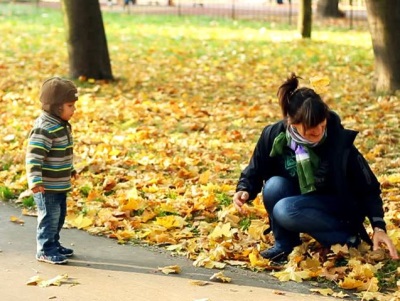How to treat a wet cough in a child?
With the help of cough, the body is protected from any irritating factors affecting the respiratory tract. A wet cough helps to remove foreign bodies, germs, toxins, viruses, dust particles and other substances from the bronchi. And when it appears in a child, parents should understand the reasons for such a cough, and the need for its treatment.
How to understand that cough is wet?
The main difference between wet and dry cough is the presence of sputum. So called specific mucus, which accumulates in the respiratory tract and coughs as a child. Normally, it is formed in a small amount and is displayed with the help of rare coughs. With respiratory diseases, the volume of sputum increases significantly, which is why the child often coughs. However, in many cases of the disease, the viscosity of sputum increases, making it difficult to cough.
No temperature
Causes of wet cough on the background of normal body temperature can be:
- Bronchial asthma. Cough up sputum with this pathology is viscous and transparent, therefore it is called vitreous.
- Allergy. Although rare, with such a problem, the child can cough up a viscous transparent sputum.
- Chronic runny nose. A cough with sputum in it, as a rule, appears in the morning.
- Heart failure.
In infants, a wet cough may be caused by contact with tears, mucus from the nose or milk in the respiratory tract. Also, a wet cough may appear during the period of teething, when babies have excessive saliva secretion.
With temperature
The presence of a wet cough and simultaneous increase in body temperature often indicates:
- SARS. A wet cough in such diseases often occurs during the recovery period.
- Acute bronchitis. With this disease, the child coughs up a large amount of sputum.
- Pneumonia. Sputum coughing for this disease may have a rusty hue.
- Lung abscess Phlegm with this pathology usually has impurities of pus.
- Tuberculosis. Blood may be present in the expectorated sputum, and the temperature is often subfebrile.
Syrups and other effective drugs
Since sputum in children is harder because of its greater viscosity and less developed musculature of the respiratory tract, in treating wet cough, it is important to ensure better mucus release. This task is handled by both herbal and synthetic drugs.
The most popular and frequently used are presented in the table:
Name and release form | Features of action and application |
Gedelix syrup | This drug is based on ivy extract. The medicine is prescribed from birth. He noted expectorant, healing and antimicrobial action. There is no sugar and alcohol in the product. Reception course is at least 7 days. |
Dr. Mom syrup | This medicine contains medicinal plants such as aloe, licorice, ginger, elecampane, turmeric and others. They have mucolytic and bronchodilator, as well as anti-inflammatory and expectorant effects. The drug is shown from 3 years. |
Ambroxol syrup | This drug has a mucolytic and expectorant effect. The drug can be used from birth in the appropriate dosage. |
ACC 100 syrup | The drug is a group of mucolytics. The active ingredient is acetylcysteine. Approved for use from the age of two. |
Dr. Theiss syrup | The basis of this medication - plantain extract. The drug has an expectorant and anti-inflammatory effect. It is allowed to take from one year old. |
This tool has an expectorant and mucolytic effect due to the content of carbocysteine. A syrup with an active substance content of 20 mg per 1 ml is approved for use from 2 years. | |
Linker syrup | Multicomponent herbal preparation with anti-inflammatory, expectorant and mucolytic effect. Approved for use in children older than 6 months. Duration of use is 5-7 days. |
There is thyme oil in the preparation. This medicine has expectorant and bactericidal action. The tool is discharged from 2 years. | |
Prospan syrup | The drug can be taken from infancy. The basis of this drug contains an extract from ivy leaves. The tool is prescribed for at least 7 days. |
Flamed syrup | The active ingredient of this drug is Ambroxol. The tool can be taken from birth. |
The medicine is based on herbal ingredients. The drug envelops the bronchial mucosa and reduces inflammation. Syrup can drink water or tea. It is prescribed from 2 years of age. | |
Mukaltin pills | The drug can be applied from 3 years of age. He is discharged for 5-7 days. Small children tablets are crushed to form a powder, and then dissolved in warm water. Older children should chew tablets before meals. |
Medicines for babies
If a wet cough bothers infants, the child should be given very carefully and only after consulting with a pediatrician. As a rule, children younger than a year are prescribed syrups with herbal ingredients, but in their use it is also important to take into account age recommendations and the risk of allergies.
Among the drugs used in infancy, are popular:
- Gedelix;
- Dry cough syrup;
- Linkus (from 6 months);
- Lasolvan;
- Herbion ivy syrup;
- Licorice root syrup;
- Prospan;
- Ambrobene;
- Bronchipret (from 3 months).
Inhalation
In case of difficulty with expectoration of viscous mucus, children over 3 years old can be inhaled with steam. For such procedures, herbal decoctions are prepared, and menthol, soda, and various essential oils are also added to the water. It is important to ensure that the liquid is too hot (you must eliminate the risk of steam burns).
Procedures performed an hour after meals. The baby should calmly inhale the steam for 5-10 minutes. After inhalation in autumn or winter, the child should not go outside for several hours. Use for such inhalation drugs can not be. It is also forbidden to perform procedures when breathing is difficult and barking cough, purulent sputum and elevated body temperature.
In the presence of a nebulizer inhalation can be carried out using such a device. It is best to use saline or mineral water to moisturize the mucous membranes. It safely and effectively dilutes viscous sputum.
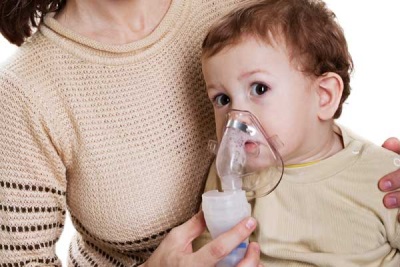
Wet cough in the morning
Cough with sputum immediately after waking up is usually associated with accumulation of mucus in the airways at night. This situation is possible with chronic sinusitis or rhinitis, as well as tonsillitis and adenoiditis. During sleep with these pathologies, mucus slips into the respiratory tract, and in the morning the child coughs it up. Also, a morning wet cough can be a symptom of bronchial asthma or allergies.
Opinion Komarovsky
A popular pediatrician advises to treat not a cough as a symptom, but a disease in which it arose. With regard to wet cough, Komarovsky's recommendations are unchanged - to humidify the air in the nursery, to walk in the fresh air, to give more to drink.
Komarovsky considers taking medications that dilute phlegm and help her to cough up, as effective as the above measures. He focuses on the fact that all medicines should be prescribed by a pediatrician, and drinking, moisturizing, airing and walking are methods available to every mother and child to help cure a wet cough faster.
A few more tips from the doctor in the following videos.
Folk remedies
For the treatment of wet cough, you can use the following recipes of traditional medicine:
- Brew mother and stepmother, marshals and oregano. To do this, take 8 g of these herbs and 500 ml of water, which just boiled. After infusion for 1.5 hours, give the baby from 1 hour spoon to 1/2 cup depending on age.
- Make an infusion according to the above recipe from althea, licorice, pine buds, anise, fennel and sage.
- Boil berries for a few minutes. viburnum and grind and then mix with honey 1 to 1. Give the child several times a day.
- Rub into the chest baby badger fat.

Tips
- The child must be shown to the doctor if a fever, loss of appetite, chest pain, or shortness of breath accompany the appearance of a wet cough. Also, be sure to call the doctor if the sputum is green or there are traces of blood in it.
- To speed recovery, the baby should be given a lot of liquid in the form of decoctions, tea, mineral water, compote, fruit drink.
- Do not give your child with a wet cough drugs that suppress the cough reflex. Due to their use, mucus ceases to separate effectively from the respiratory tract, as a result of which complications may develop.
- One method of improving sputum separation is a drainage massage. Any mother can master it, and such a procedure is possible even in infancy.
- If you cough a child's normal body temperature, you should go for a walk with your baby. During movements in fresh air, the phlegm will separate more efficiently.
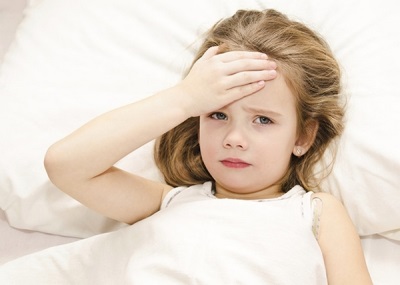
Prevention
Optimal conditions for normal ventilation of the lungs should be created in the child’s room. The temperature in the nursery should be about + 18 + 20 ° С, the air should be humidified (this is especially important during the heating season) and clean.
The room should be regularly cleaned and cleaned from things that accumulate dust. It is also important to exclude the impact on the child's respiratory tract of smoke, sharp perfume smells and household chemicals.
To prevent infectious and catarrhal diseases that are manifested by wet cough, it is recommended:
- Properly organize the regime of the day of the child.
- To walk in the fresh air in any weather.
- Perform tempering procedures.
- Watch your baby’s personal hygiene and increase her control during the cold season.
- Provide a sufficient amount of vitamins and minerals in the children's menu, or give a small vitamin complexes.
